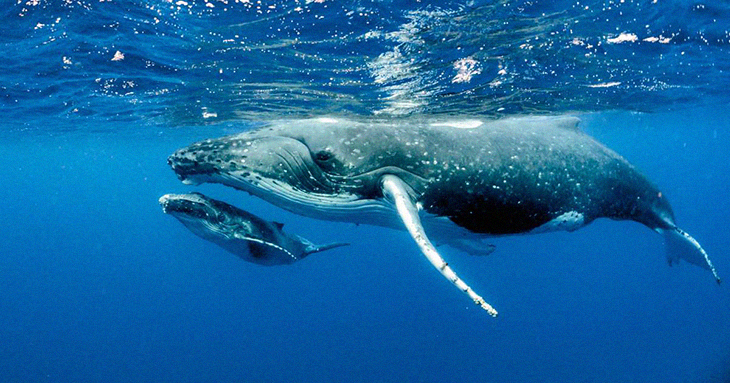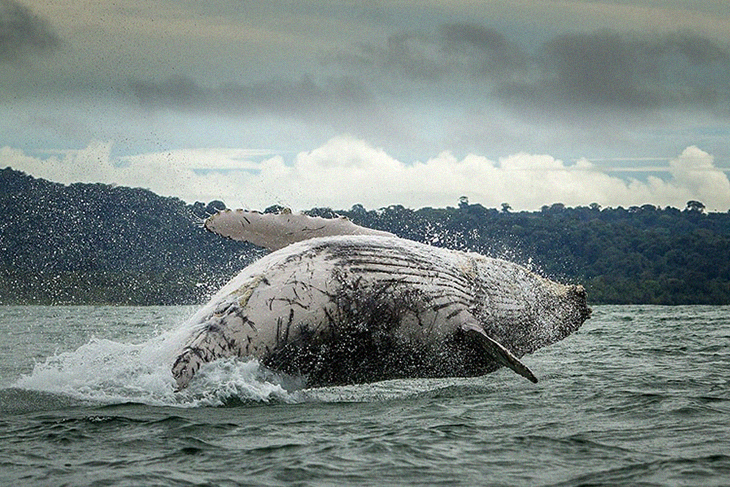
The title says it all, if there is something positive about the current coronavirus pandemic, is that it gave nature more room to breathe and recuperate. Aside from the many stories about the reduction of air pollution, and wildlife taking back its habitat in the absence of people, the seas are benefitting from reduced maritime traffic, which means less noise pollution underwater. It seems whales and other aquatic animals are more relaxed and less stressed.
Scientists who are tracking live underwater sound signals from ocean observatories near the port of Vancouver realized there was a major drop in low frequency sounds coming from ships at sea. Less maritime traffic, which includes tankers, container and cargo ships, cruise liners, and other seafaring vehicles, means less disturbing sounds for marine life.

David Barclay, assistant professor of oceanography at Dalhousie University, explained that two observatories recorded major drops in noise within the 100 Hz range. “ Generally, we know underwater noise at this frequency has effects on marine mammals. There has been a consistent drop in noise since 1January, which has amounted to a change of four or five decibels in the period up to 1 April.” He noted that the lowered volume agrees with an overall drop in maritime traffic during the same period, with exports and imports falling by about 20 percent at the time. This was all due to an unprecedented collapse in economic activity across the globe. Much fewer marine vessels were in the world’s waterways. This massive pause in shipping is encouraging scientists to find out the effect on marine life. Barclay and his colleagues call it a “giant human experiment.”
“We are facing a moment of truth,” Michelle Fournet, an acoustic ecologist at Cornell University who studies animal communication around Alaska, especially among whales, said. “We have an opportunity to listen – and that opportunity to listen will not appear again in our lifetime.” However, traffic at land and sea also fell after the 9/11 catastrophe, and scientists were also able to study how quieter oceans impacted baleen whales, and a landmark study was produced showing how man-made underwater ocean noise by ships led to chronic stress in whales. Fournet added, “We have a generation of humpbacks that have never known a quiet ocean.” This pause in maritime traffic gives the scientists a chance to gain more insights on how whales interact with each other, especially in the south-east Alaska region. “What we know about whales in south-east Alaska is that when it gets noisy they call less, and when boats go by they call less,” Fournet adds.

“I expect what we might see is an opportunity for whales to have more conversation and to have more complex conversation.” Fournet’s enthusiasm is shared by oceanologists all over the world who just want to listen to whales while the pandemic has interrupted their normal work. Nathan Merchant, the bioacoustics expert of the UK government’s Centre For Environment, Fisheries, and Aquaculture Science said, “We are on tenterhooks waiting to see what our records are saying.” The truth is Merchant’s crew had been planning on how to make the ocean quieter in order to experiment and gauge the benefits, if any, it may have on marine life. Well it seems it just fell on their lap. The pandemic has affected world economies in global proportions, and a drop in noise pollution seems to be providing whales with moments of aural peace that they have not enjoyed before. Even as Merchant believes the pandemic is a terrible and dangerous crisis, it seems not all is negative…and the whales seem to agree.
What are your thoughts? Please comment below and share this news!
True Activist / Report a typo


